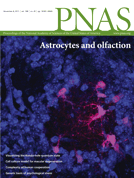 导读:许多肿瘤会引起慢性炎症,以抑制免疫系统对肿瘤的特定攻击。最近,德国癌症研究中心和海德堡大学曼海姆医学院的科学家在患有黑色素瘤的老鼠身上证明,西地那非——伟哥中的一种活性成分,能够消除这种特异性的免疫抑制反应。接受西地那非治疗的患癌小鼠存活率是没有接受西地那非治疗的患癌小鼠的两倍。
导读:许多肿瘤会引起慢性炎症,以抑制免疫系统对肿瘤的特定攻击。最近,德国癌症研究中心和海德堡大学曼海姆医学院的科学家在患有黑色素瘤的老鼠身上证明,西地那非——伟哥中的一种活性成分,能够消除这种特异性的免疫抑制反应。接受西地那非治疗的患癌小鼠存活率是没有接受西地那非治疗的患癌小鼠的两倍。
乍一看,这听起来是一个好消息:几乎每一种癌症都会让身体免疫系统变得活跃,但是,这对病人不一定有利。“我们区分了两种不同类型的免疫反应。”来自于德国癌症研究中心、曼海姆大学医学中心的免疫学家Viktor Umansky教授说道。“一方面,免疫系统的细胞专门攻击肿瘤细胞,另一方面,几乎每一种肿瘤都会在它的微环境里形成慢性炎症免疫反应,以抑制这种特定的抗肿瘤免疫。”
在炎症免疫反应里,某种类型的免疫细胞迁移到肿瘤附近,释放特定的免疫介质。“我们的目标是减少慢性炎症,支持免疫系统积极抵抗癌症。” Umansky教授说。
他和他的团队研究的是由恶性黑色素瘤引起的慢性炎症。在这项研究中,他们使用转基因小鼠,这种小鼠可以自发地产生一种类似于人类黑色素瘤的皮肤癌。研究人员在肿瘤环境和动物淋巴结转移中,检测到了诸如白细胞介素1-β和干扰素-γ的炎症介质。这些免疫介质会吸引一种名为髓系衍生抑制的细胞(MDSC)。在既往的研究中表明,MDSC能够抑制人体免疫系统抗击肿瘤的重要细胞——T细胞。
当T细胞在MDSC的影响下到底会发生什么?在培养皿中,当研究人员把从健康小鼠的脾中获得的T细胞暴露在MDSC下时,T细胞停止增殖。此外,T细胞中一种重要的分子活性水平降低。“这表明,肿瘤特异性T细胞被髓系衍生抑制细胞抑制了。” Umansky解释道。
研究人员然后对黑色素瘤小鼠给予西地那非。这种药物——因为它的商标名称伟哥而闻名——之前已经因为能够在动物实验模型里改善肿瘤免疫报道过数次。七周后,给药的存活老鼠比没有给药的数量多两倍。在给药的老鼠身上,研究人员检测到肿瘤特异性T细胞和分子活性水平都回复正常。这意味着,在黑色素瘤环境中,西地那非成功地中和了慢性炎症,降低了MDSC的活性。
“我们的研究方法是特殊的,我们实验小鼠所患的疾病在小鼠体内的过程和黑色素瘤在人体内的过程类似。” Viktor Umansky对他的医学结论做了相关解释。“因此,极有可能的是,西地那非也可用来抑制人体炎症免疫抑制,从而提高黑色素瘤患者的肿瘤免疫。通过这种方式,这种药物可能有助于医生在治疗恶性黑色素瘤方面取得更好的效果。”(生物探索译)
相关英文论文摘要:
Chronic inflammation promotes myeloid-derived suppressor cell activation blocking antitumor immunity in transgenic mouse melanoma model
Tumor microenvironment is characterized by chronic inflammation represented by infiltrating leukocytes and soluble mediators, which lead to a local and systemic immunosuppression associated with cancer progression. Here, we used the ret transgenic spontaneous murine melanoma model that mimics human melanoma. Skin tumors and metastatic lymph nodes showed increased levels of inflammatory factors such as IL-1β, GM-CSF, and IFN-γ, which correlated with tumor progression. Moreover, Gr1+CD11b+ myeloid-derived suppressor cells (MDSCs), known to inhibit tumor reactive T cells, were enriched in melanoma lesions and lymphatic organs during tumor progression. MDSC infiltration was associated with a strong TCR ζ-chain down-regulation in all T cells. Coculturing normal splenocytes with tumor-derived MDSC induced a decreased T-cell proliferation and ζ-chain expression, verifying the MDSC immunosuppressive function and suggesting that the tumor inflammatory microenvironment supports MDSC recruitment and immunosuppressive activity. Indeed, upon manipulation of the melanoma microenvironment with the phosphodiesterase-5 inhibitor sildenafil, we observed reduced levels of numerous inflammatory mediators (e.g., IL-1β, IL-6, VEGF, S100A9) in association with decreased MDSC amounts and immunosuppressive function, indicating an antiinflammatory effect of sildenafil. This led to a partial restoration of ζ-chain expression in T cells and to a significantly increased survival of tumor-bearing mice. CD8 T-cell depletion resulted in an abrogation of sildenafil beneficial outcome, suggesting the involvement of MDSC and CD8 T cells in the observed therapeutic effects. Our data imply that inhibition of chronic inflammation in the tumor microenvironment should be applied in conjunction with melanoma immunotherapies to increase their efficacy.







